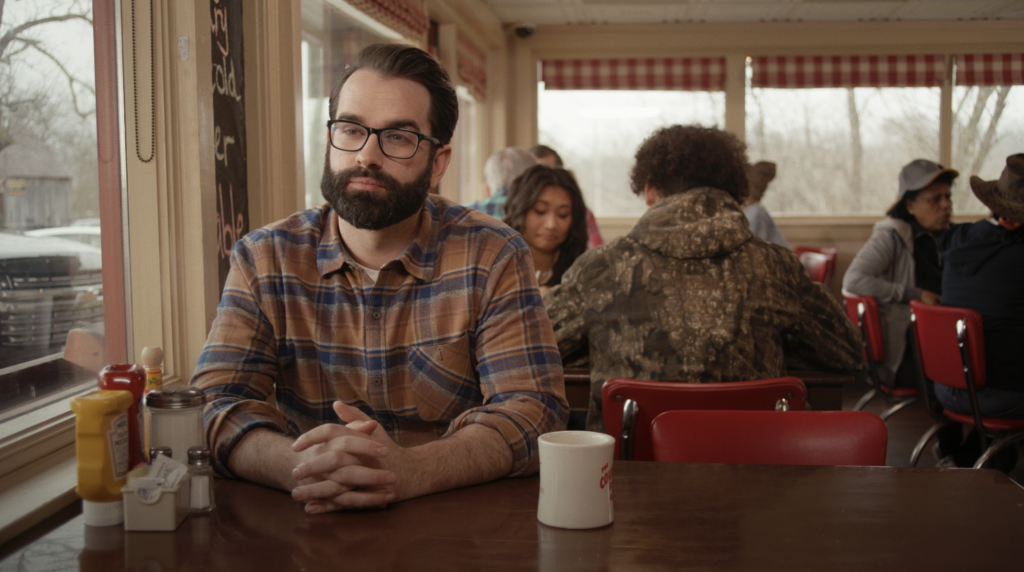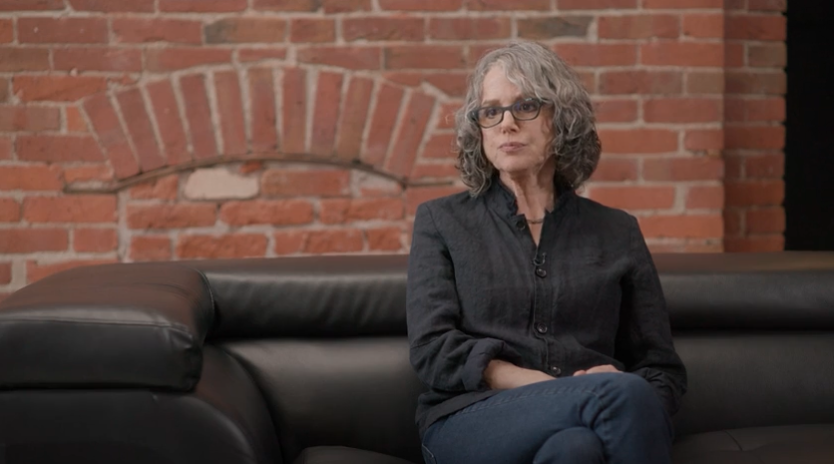‘Am I Racist?’ Seeks To Play ‘Candid Camera’ on DEI, But Forgets To Smile
Every day ‘white people’ who feel guilt over racism come off as rubes. One woman announces that she is estranged from her entire family because of their racism.

The Daily Wire’s first film to reach theaters, “Am I Racist?,” presents itself as a comedy. Yet its main actor, Matt Walsh, is a straight man with no sidekick. If the film does a service, it’s to show that America is closer to racial harmony than those embracing or opposing DEI — diversity, equity, and inclusion — would have us believe.
As satire, this is not “Spinal Tap,” and as a conservative “Candid Camera,” Mr. Walsh is no Allen Funt. The interviewer for “Candid Camera” always let the people in on the practical jokes he played with the line, “Smile, you’re on ‘Candid Camera’!” By contrast, Mr. Walsh, who wrote and directed “Am I Racist?,” doesn’t smile once during its 100-minute runtime.
I didn’t hear many laughs among the two-dozen people in the theater, either. Bored, the couple in front of me scrolled on Instagram for the final 40 minutes. It’s a safe bet that along with the rest of the audience, they shared Mr. Walsh’s conservative politics and sense of humor. Yet “Am I Racist?” didn’t let them in on the joke, either.

Which scenes were staged by actors, and which featured real people, was confusing. It felt like duping the very people who paid for the experience, something we never did when I worked for Rush Limbaugh, who pioneered the path followed by outlets like the Daily Wire.
From “Rush Limbaugh the Television Show” in the mid-1990s through radio and RushLimbaugh.com, I produced and sometimes performed political satire of the left. Respect for our audience and even those we mocked — Senator Ted Kennedy’s drinking went on the forbidden list after a request from JFK Jr. — were always important.
I also worked at Fox News Channel; so, the idea of deceiving people who are kind enough to pause to answer an MOS — “Man on the Street” — question also raised my hackles. When you point a camera, people change. They want to provide an answer lest they let you down or look dumb, and that’s before you cut up their clip in the edit booth.
The left-wing DEI advocates in “Am I Racist?” are treated with the same lack of candor. When a Black woman leading a workshop says she feels “unsafe” in white crowds, the film fails to acknowledge that she might be sincere.
Although some of the leftists featured made claims such as “All Republicans are Nazis” and America “is racist down to its bones” and “needs to burn,” the author of “White Fragility,” Robin DiAngelo, comes across as earnest. After Mr. Walsh walks Ms. DiAngelo through scenarios where she gives offense, she apologizes.
“I would like,” Ms. DiAngelo says, “to offer you a repair.” It’s cast as touchy-feely nonsense. Wouldn’t the world be better if we all had that impulse to heal when we touch a sore spot? When Mr. Walsh pays a Black actor reparations out of his pocket, Ms. DiAngelo reaches into her purse, too. Is she a fool, or putting her money where her mouth is?

At a dinner party of elderly ladies seeking to confront their biases, Mr. Walsh poses as a waiter. He inserts himself into the conversation, sits down, and drops a tray of plates with explosive effect. The performance proves the point his DEI foils make: As a tall, imposing white man, he feels he has the “privilege” to be obnoxious.
Mr. Walsh appears as a guest on several TV shows in his “DEI Expert” guise. Again, my sympathy was with the bookers and producers, having been in their shoes. Getting fooled into putting a fake guest on the air is huge. Careers are ruined over such hoaxes — in this case, just because they sought to play a small part in healing racial divisions.
Every day “white people” who feel guilt over racism also come off as rubes in “Am I Racist?” Several pay to attend a course Mr. Walsh teaches as a “Certified DEI Expert.” Invited to share their experiences, one woman announces that she is estranged from her entire family because of their racism.
This woman might have had good reason, such as falling in love with a Black man like the girl in “Guess Who’s Coming to Dinner.” I found myself wanting to follow her journey more than Mr. Walsh’s, but “Am I Racist?” breezes past the confession, inviting us to roll our eyes at her pain.
Mr. Walsh, dressed as a caricature of a “DEI expert,” also interviews the patrons of 99 Bottles at Castalian Springs, Tennessee. The bar is adorned with Confederate flags, but the patrons say things very similar to those of the Black residents Mr. Walsh interviews at New Orleans. More of this might have made “Am I Racist?” a thought-provoking endeavor.
“Am I Racist” is at its most interesting when the author of “Hate Crime Hoax,” Wilfred Reilly, offers data that shows bias crimes are not as prevalent as reported. Mr. Walsh also interviews the mother of two young girls snubbed by a mascot at Sesame Place, noting that he paid her $50,000, just as he paid the DEI advocates to participate.
Mr. Walsh pantomimes an infamous fake hate crime by the TV actor Jussie Smolett. It’s clever, but it adds to the sense that “Am I Racist?” is saying that because some alleged instances of bias are false or overblown, none exist.
Most of the fakes are breezed past too fast for any lesson to be gleaned because Mr. Walsh doesn’t stipulate that they’re all debunked. I wish he’d focused more on those instances of powerful people benefiting from stoking racial divisions, not the average folks caught up in the frenzy.
“Am I Racist?” is being panned or ignored by critics, but it’s a well-produced film that fans have put into the Top 5 at the box office. Although it goes in search of DEI excesses dialed up to 11, it finds a lot of people who seem genuine in their desire to repair what’s broken rather than play pain for laughs and profit.

